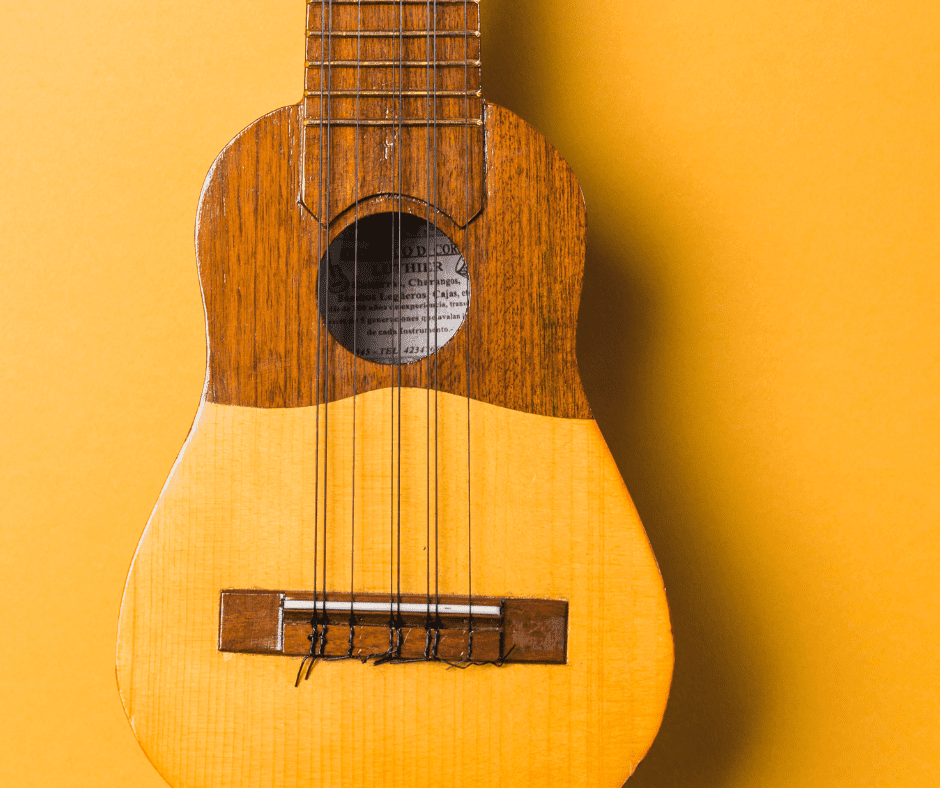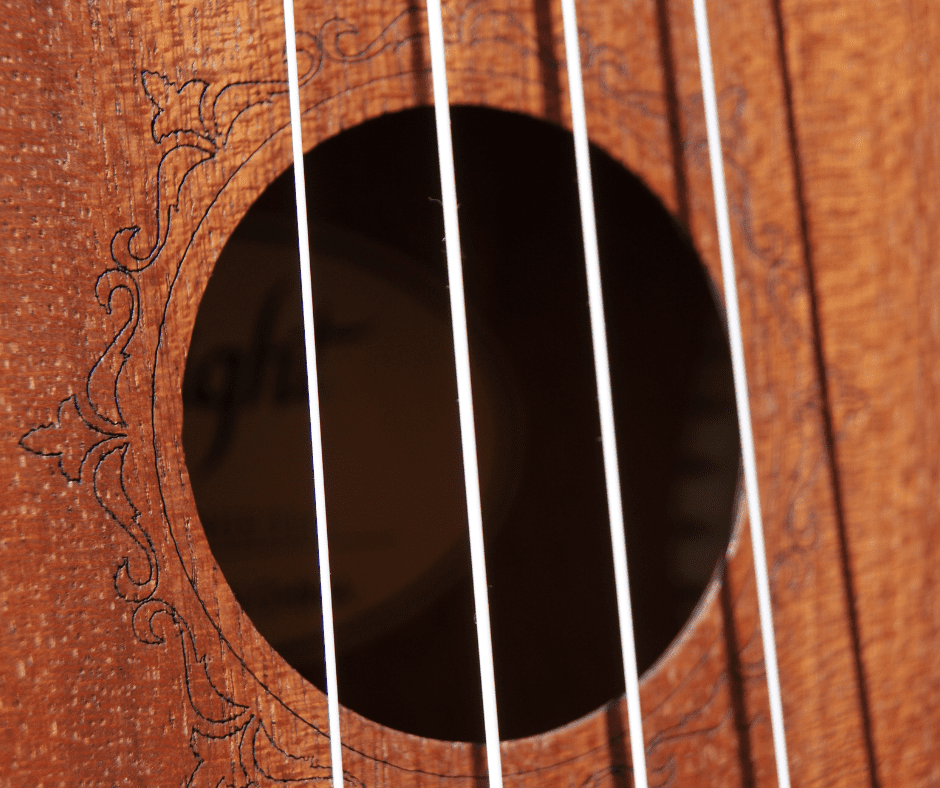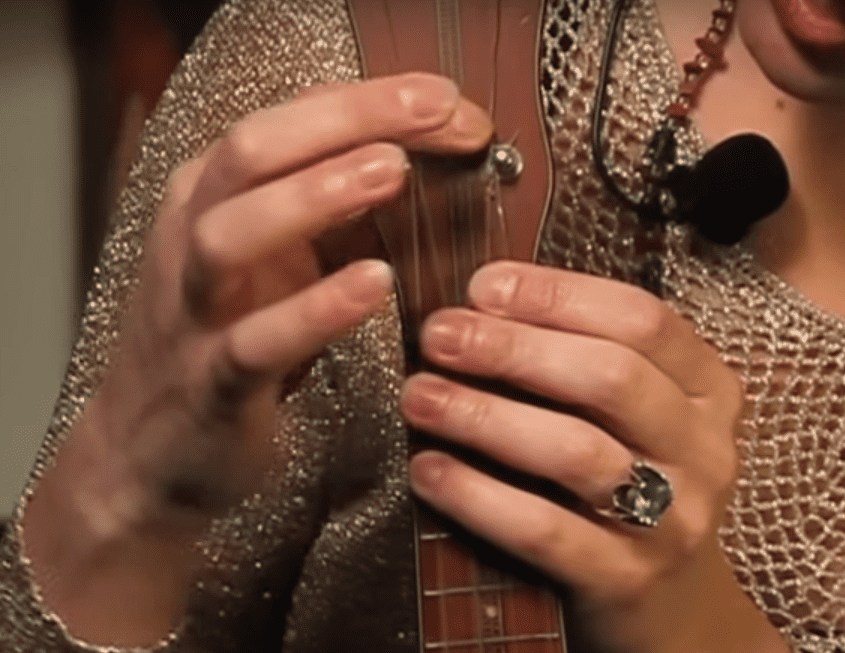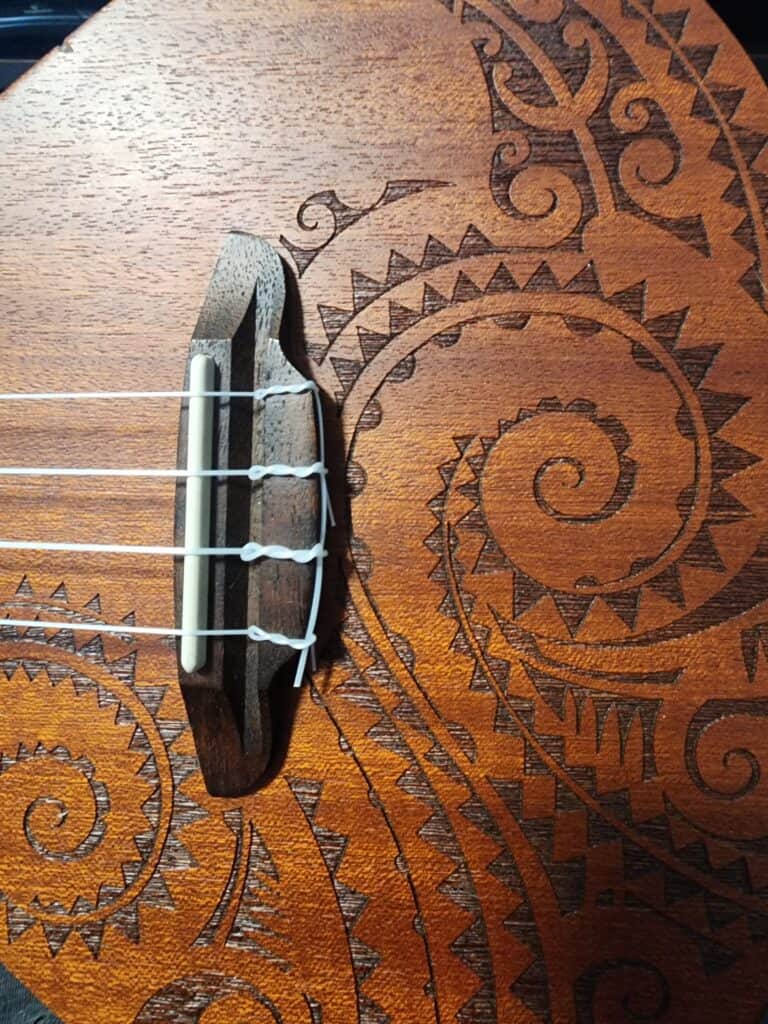My wife called me and said, “How can we afford to keep letting the kids play the uke?”, which had me confused. She started a story that ended up with a broken uke string and an estimate of $45 to repair the string from the local music store. That seemed really expensive to me.
After calling 19 music service stores in area, I found that the average price to get a damaged or broken ukulele string replaced is $33, which typically includes a whole new set of strings, installation by an instrument technician, and a professional tuning. This still seemed like to much money for me, so I wanted to explore a few different options, and started looking into whether I could get this done cheaper, or if it’d be worth it for me to pay someone to do it.

How Much Does It Cost To Replace A String On A Ukulele?
When my wife started explaining, she told me that my son brought his soprano uke, the same one that had been around the house for a couple years at that point, and told her he couldn’t get it to sound right. She didn’t think much of it and started tuning it – but she couldn’t get one of the strings in tune. She told me she wasn’t 100% sure what happened, but she thought one of the kid’s friends wrenched on the tuners while they were visiting, and damaged the string.
She knows how to tune an instrument, but my son is actually more practiced at it than she is – and if my son can’t get it she figured that there was a real problem with the uke. They were on their way out of the house, so she brought it with her to stop by the local luthier and see how much it would cost to have the string replaced.
She told me that she was quoted a cost of $45 dollars to replace the entire set of strings. Fortunately, I do have a local luthier even though I live in a small town. He’s a guitar expert, and has some great handmade instruments in town.

He advised my wife that instead of replacing one string, it would be more economical to replace the entire set of strings, and that in fact, he didn’t even keep single strings available for purchase, and that he didn’t even have any single strings available.
The luthier said that he would remove the old strings, replace with a brand new set of strings, and get the uke in tune, stretch the strings as he was able, and tune it a few more times before we came to pick it up.
He said it would be about $20 for a set of strings, and $25 for he labor charge for his service, which ultimately means that the true cost to replace a single string with this local luthier is $45.
Like I said before, I thought that this was pretty expensive. so I called around my local area to see how much other places would charge to replace a string, or even a set of strings. I called 18 different shops in my area, which is a city of about 1 million people, and found that the average for a set of replacement strings on your uke is $35.
Many of the local places followed a similar model, they charged for a set of strings, and a labor cost to install them. Two guys I spoke to said that if you buy a set of strings they’d put them on, and tune them but they would need to be tuned repeatedly over the next several weeks.
This is a normal part of the process of replacing any strings on any musical instrument though. The strings need to be under a specific amount of tension, which causes them to vibrate at the exact right pitch so that you can play the strings together to create music.
As the new string ages, and is played and stretched, the pitch will change and it will need to be tuned again. Even changes in temperature and humidity can cause your ukulele to stretch just and relax a bit throughout the year, which will make you need to adjust the strings just a bit to keep it in tune.
Whether you’re paying someone to put new strings on your uke and tune and stretch them a bit, or you just try to do it yourself, you’ll need to be proficient and consistent at tuning your uke for several weeks after the string change.

If you keep the uke in use, and tune it regularly, a new set of strings tends to stop stretching after just a few weeks of use. You’ll find you need to tune it less as you use it more and more.
Of course that brings up the next big question:
Can You Restring a Ukulele Yourself?
There are plenty of people in the world who are intimidated by instruments, or maybe have been taught that only a professional is qualified to do any work on their ukulele, but millions of non-qualified people have shown again and again, nearly everyone who attempts it is able to successfully remove, replace and retune the strings on their own ukulele, without the assistance of a music store or qualified technician.

There are only a couple of difficult points that you need to remember, and take into consideration when you’re starting to restring your uke:
- Get the right size strings
- Learn the knot system
- How to Tune
A quick search on Amazon shows dozens of sets of uke strings that can get to my house by tomorrow, for between $5 and $10 dollars. I personally love these couple of string sets that I have highlighted on my Resources Page.
You just need to make sure that if you have a soprano uke, you order soprano strings and the same remains true for the remaining sizes concert, tenor, baritone. Each listing should specify what size uke the strings are for. Make sure you order the right size.
Next check the knot, or attachment system on your uke. This is the point where the string connects to the bridge/body. Many uke strings attach with knots like these:

Make sure you know how to replace these knots by following an instructional video like this one:
Finally, just tune your uke up.
I personally love clip on tuners, but there are plenty of apps that you can use to tune your uke up and it’ll be ready to play.
It doesn’t take that much effort, or even that much care to be able to replace you own strings. All it takes is a little bit of practice. If you just try it out you’ll probably get it right.
You’ll have just saved yourself about $30 if you did the project yourself.
